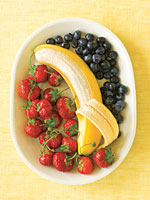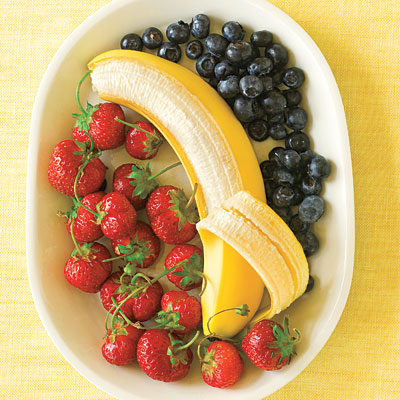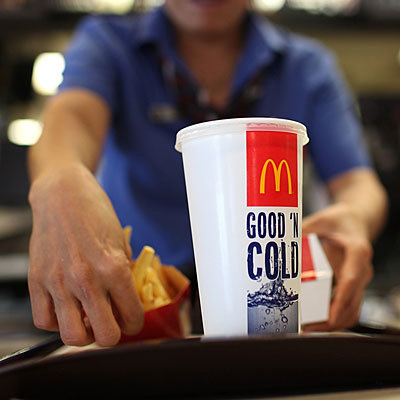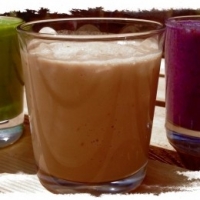 Research behind The CarbLovers Diet Cookbook shows strong evidence that a diet rich in carbs is the healthiest and most effective way to get and stay slim for life. But here's something to keep in mind: These carbs aren't the refined kind, packed with tons of additives and preservatives that come in crinkly packages from a vending machine. The CarbLovers Diet isn't about junk food (though you are allowed daily indulgences, including chocolate). The carb-rich foods that make you slender are packed with fiber, antioxidants, and Resistant Starch, the star ingredient that has helped so many feel full and lose weight on The CarbLovers Diet.
Research behind The CarbLovers Diet Cookbook shows strong evidence that a diet rich in carbs is the healthiest and most effective way to get and stay slim for life. But here's something to keep in mind: These carbs aren't the refined kind, packed with tons of additives and preservatives that come in crinkly packages from a vending machine. The CarbLovers Diet isn't about junk food (though you are allowed daily indulgences, including chocolate). The carb-rich foods that make you slender are packed with fiber, antioxidants, and Resistant Starch, the star ingredient that has helped so many feel full and lose weight on The CarbLovers Diet.
What exactly is Resistant Starch? Carbohydrate-rich foods contain two types of starch. One is high-glycemic starch; like sugar, it gets absorbed into the bloodstream quickly and gives you a fast hit of energy. Another is called Resistant Starch, so named because it "resists" digestion. Hundreds of studies have shown Resistant Starch to be a natural appetite suppressant, metabolism booster, and overall health promoter. It produces fatty acids that trigger weight loss by turning on enzymes that melt fat, especially in the abdominal area; encouraging your liver to switch to a fat-burning state; and boosting satiety hormones that make you get and stay full longer. Resistant Starch is more than safe; you really can't eat too much of it. In fact, most people consume too little—about 5 grams a day. Researchers believe we need at least twice that amount for optimal health and weight loss. That's why the CarbLovers menus include 10 to 15 grams daily of this important fat-burning nutrient, served up in delicious recipes like our Cornflake-Crusted Chicken Tenders and Triple-Cheese Mac.
The CarbLovers Diet Cookbook doesn't hinge solely on the health and weight-loss benefits of Resistant Starch, though. All of our recipes have been created to pack the best possible ratio of the nutrients that research shows help to melt fat, boost satiety, and promote good health—and get you a much flatter belly. Belly bloat is one of the key symptoms of constipation, a common side effect of not eating enough healthy carbs.
For instance, one groundbreaking study looked at thousands of people to see what factors determine whether they stayed slim or gained weight over time. Conclusion: The slimmest people ate the most good carbs—the kind you'll find in the recipes in this book—and the chubbiest ate the least. The researchers confirmed that your odds of getting and staying slim are best when carbs comprise up to 64% of your total calorie intake, which mirrors what a day of eating the CarbLovers way delivers.
As you cook and eat according to The CarbLovers Diet Cookbook, you might start to feel calmer, happier, and less stressed. The reason? Carbs boost mood-regulating, stress-reducing chemicals in the brain, while high-protein, fatty foods may deplete them, says Grant Brinkworth, PhD, lead researcher of a study published in the Archives of Internal Medicine. He followed 51 dieters on a carb-rich diet and 55 dieters on a low-carb plan. After a year, the carb eaters felt happier, calmer, and more focused than the carb-deprived group, who reported feeling stressed out. Stress produces high levels of hormones, such as cortisol, which boost your appetite and can lead to bingeing, says obesity researcher Elissa Epel, PhD, associate professor in the department of psychiatry at the University of California, San Francisco.





